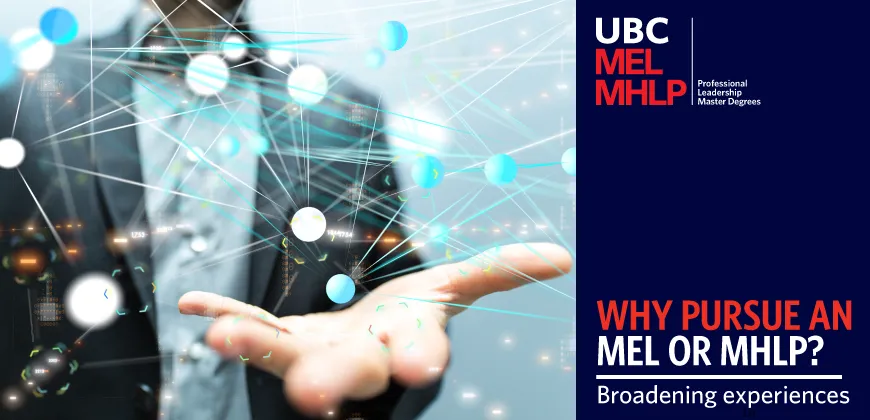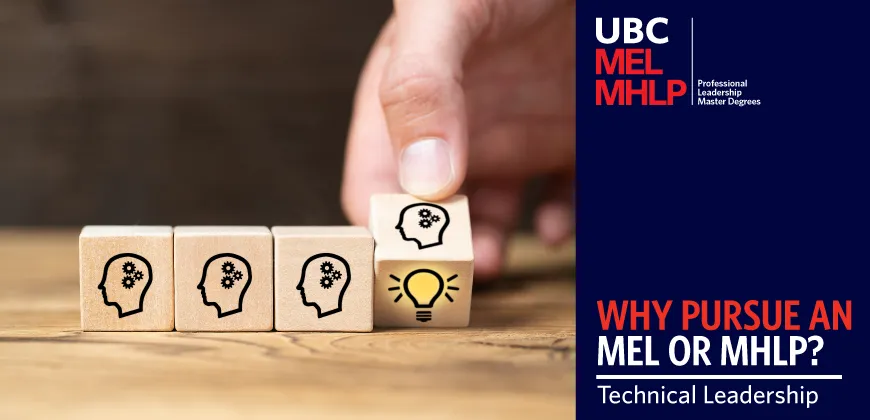Broadening your experience through projects, practicums and capstones

When you're evaluating graduate degree programs to decide which one is right for you, take a close look at the curriculum and the projects you'll be working on in your classes. While some programs emphasize independent research, others create opportunities to actually apply the knowledge you're learning in real-world situations.
These assignments and projects enable students to directly apply knowledge from their classroom learning, expand their skill set and grow their network – and also give them transferable leadership skills and strengthen their resumés.
The Master of Engineering Leadership (MEL) and Master of Health Leadership and Policy (MHLP) deliver project-based curricula that offer ample opportunities for students to engage in hands-on learning opportunities. These range from practicums and capstone projects to research projects and assignments. The activities you engage in will depend on the program you choose. “Where possible, the MEL and MHLP programs integrate experiential projects that create opportunities for students to work directly with industry partners,” says Justin Bull, Academic Director of the MEL and MHLP. “Capstones, research projects and practicums push students to cultivate their technical and research skills while communicating with diverse stakeholders in real-world contexts.”
PROJECTS THAT BUILD SKILLS AND NETWORKS
While not all of the sector-specific specializations in the MEL and MHLP offer opportunities for capstone projects or practicums with industry partners, each specialization incorporates assignments and projects that are connected to industry challenges and based on real-world data. Here are just a few examples of the projects students worked on over the past year:
- A student in Clean Energy Engineering evaluated the technical and economic viability of powering mine sites with renewable hydrogen
- One team of students in the Dependable Software Systems program developed a Gradle plugin and Github actions for fuzz testing and a second team studied the use of ensemble methods to address errors in training data used in machine learning
- In High Performance Buildings, students completed two capstone projects over the year where they developed energy models and explored ways to optimize the energy performance of existing buildings
- Students in Integrated Water Management developed a water safety plan for a small island community in British Columbia
- Students in Naval Architecture and Marine Engineering worked with a marine classification society to develop a methodology for assessing the risk that a ship could lose propulsion during high waves
- A student in Sustainable Process Engineering assessed the feasibility of green ammonia production at an idled plant in Trinidad & Tobago
- As part of a class project in Urban Systems, students worked with a local municipality to complete an asset management plan
- A student in Clinical Education completed a practicum with the team for the new St. Paul’s Hospital to ensure the new design addresses the accessibility needs of patients and health-care teams; two other students did a practicum where they assessed the changes in professional development pathways for clinical educators as a result of the shift to online learning during COVID-19
- As an extracurricular activity, a student in Seniors Care worked with a long-term care home provider to relaunch its Family Council
These experiential learning projects not only give students tangible skills, they also provide industry connections that can lead to career opportunities and leadership positions.
For example, the MEL in Naval Architecture and Marine Engineering program has a variety of hands-on opportunities in the summer. Connor Maloney, a student who entered the Naval Architecture and Marine Engineering program with work experience as a mechanical engineer, had the opportunity to combine the program’s technical courses with a three-month work co-op at Seaspan. This gave him the hands-on experience needed to land a position with Irving Shipyards, where he is now an assistant project manager working on the Arctic and Offshore Patrol Ship project. Similarly, Arlene Singh came into the MHLP with significant experience in critical care and teaching but little experience of virtual health. After completing a practicum where she recommended strategies to improve the uptake of online health services across Vancouver Coastal Health, she had the experience and knowledge to shift her career in a new direction, and she is now senior clinical leader in the Office of Virtual Health.
There are many things to consider considerations when choosing a postgraduate program. If you’re looking for an education that incorporates experiential learning where you can immediately apply the knowledge you’re learning in the classroom, the MEL or MHLP could be the right choice.
Not only do these learning opportunities build new skills, they also enable you to expand your network and gain the practical and leadership experience employers are looking for when hiring.





